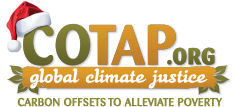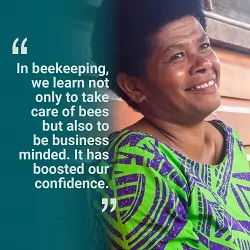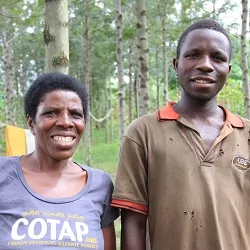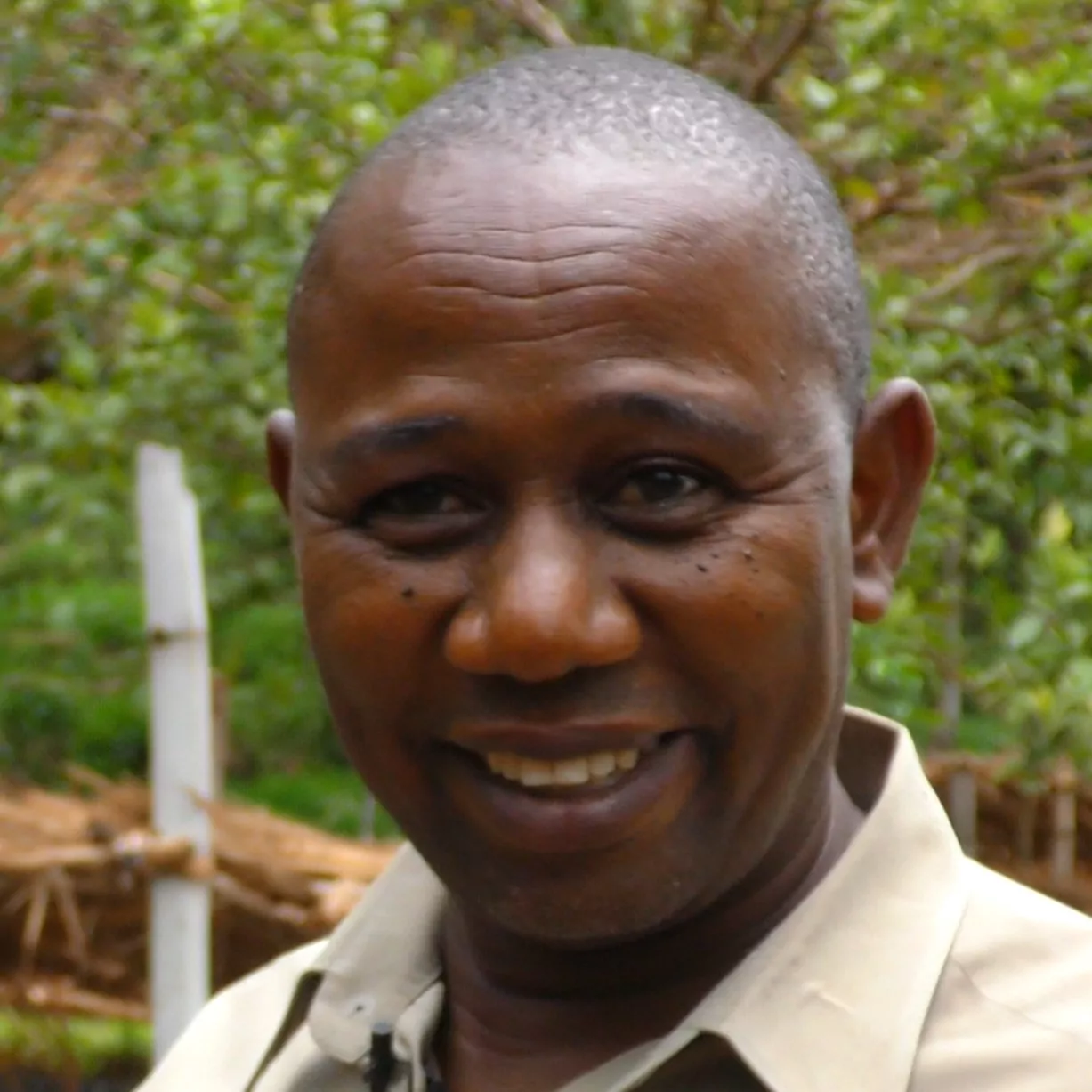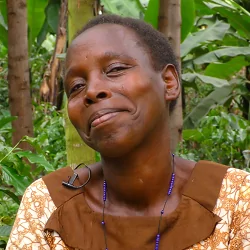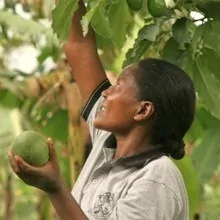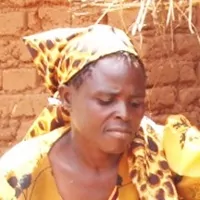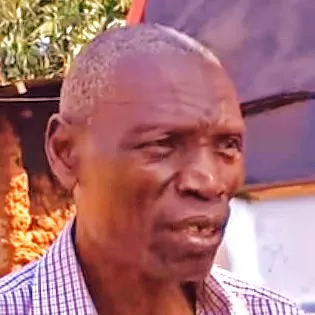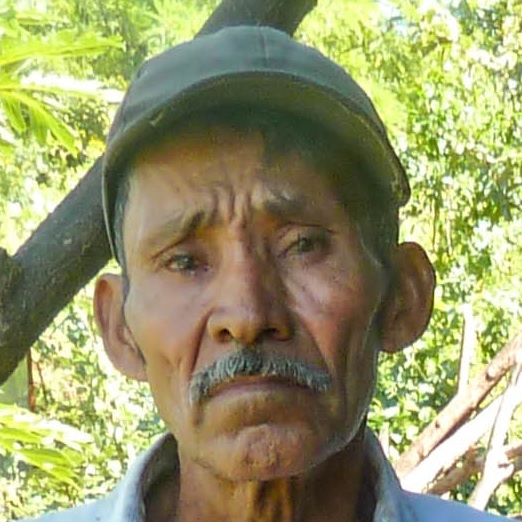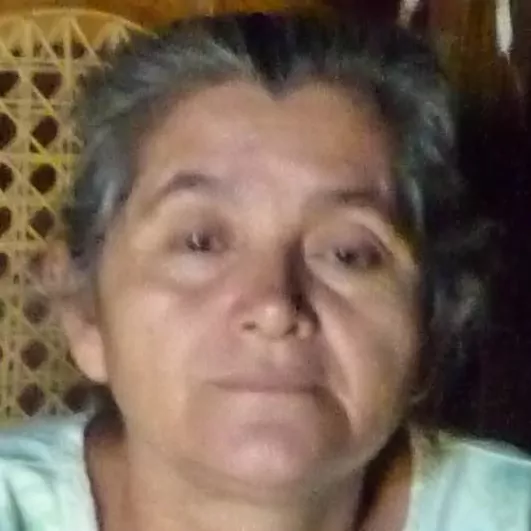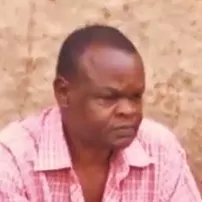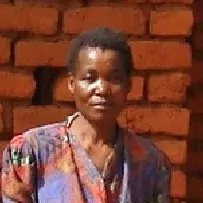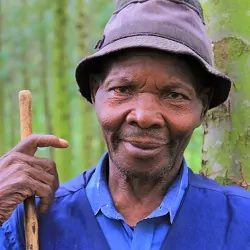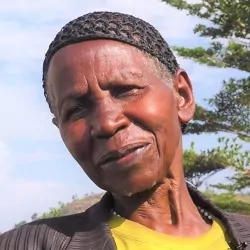We hope you enjoy this round-up of all the amazing happenings with our partner projects, The Plan Vivo Foundation, and COTAP! All project’s most recent annual reports, project design documents, and verification reports can be found in our Dropbox folder here.
Trees for Global Benefits Turns 20
Ecotrust Uganda’s Trees for Global Benefits (TGB) turned 20 years old this year! Their annual stakeholder event was held on December 14th. As part of the celebrations, TGB is honoring its very first Pioneer Farmers who joined in 2003. Check out their profiles .pdf booklet or the online version.
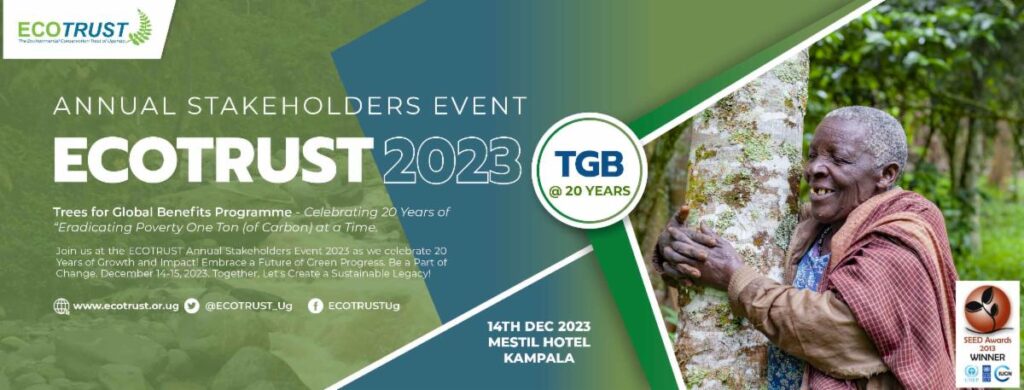
New TGB Farmer Interviews
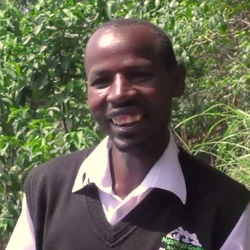
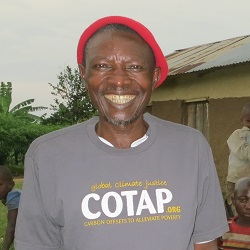
As with previous interviews, we hear about familiar farmer benefits like paying for school fees, as well as something a little unique and insightful. Here we learn about how TGB earnings lead to small-scale community savings and loans arrangements (Adam Turyareeba – in the COTAP shirt) and how non-timber forest products or NTFP’s like honey create “second-order” income streams (Zinori Bikorwomuhangi).
ZeroMission visits TGB
Over the Summer, Ecotrust also hosted a delegation from Stockholm-based COTAP friends ZeroMission, one of the oldest and largest supporters of TGB as well as Plan Vivo projects in general. They put out a trip report called “Stories from Uganda.”
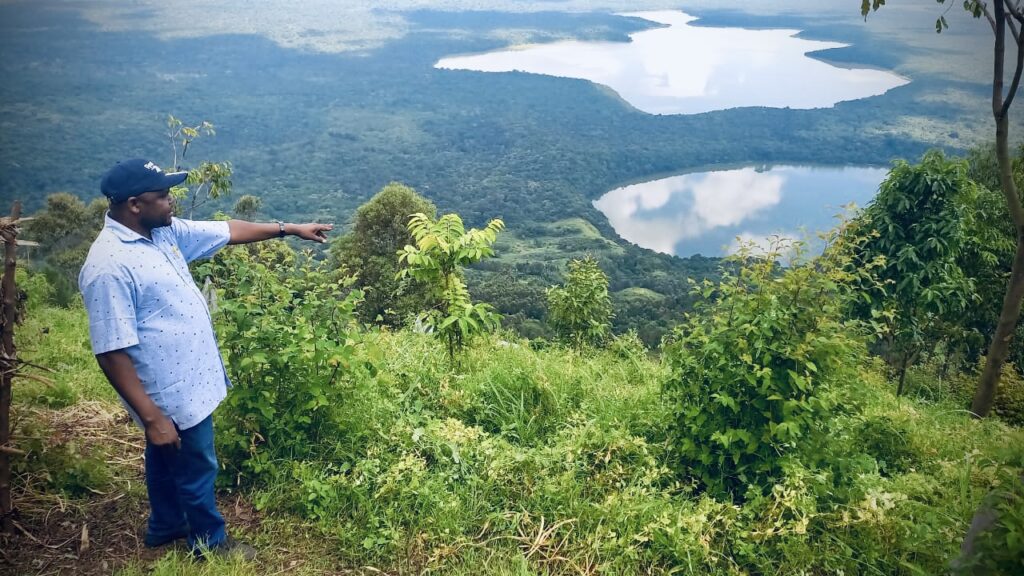
Ambulances, Caterpillars, and Adventure Camps in the East Khasi Hills
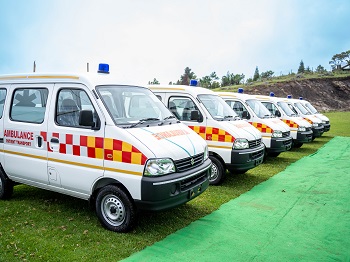
Our Khasi Hills update grew so large that it’s now its own standalone update called “Ambulances, Caterpillars, and Adventure Camps in the East Khasi Hills.” In it, you’ll learn how the Synjuk distributed ambulances to 6 Hima, the Khasi’s annual Niang Phlang Caterpiller Eating Festival, and the Destiny Self-Help Group’s launch of their Riverside Adventure Camp… all made possible through carbon offsetting.
Bujang Raba – Jambi, Indonesia
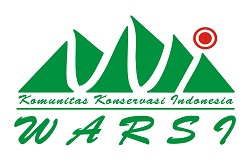
We’re thrilled to announce that this past September we sent our first purchase order for 8,881 tonnes / $119,893.50 to Komunitas Konservasi Indonesia Warsi. COTAP had been pooling funds for Bujang Raba (short for Bukit Panjang Rantau Bayur) since February 2020, and then the Indonesian government imposed a moratorium on carbon trading pending release of national regulations. In response to this challenge, COTAP is proud to have brought significant value to Bujang Raba by continuing to pool funds for it and being be flexible on vintage and timing of delivery.
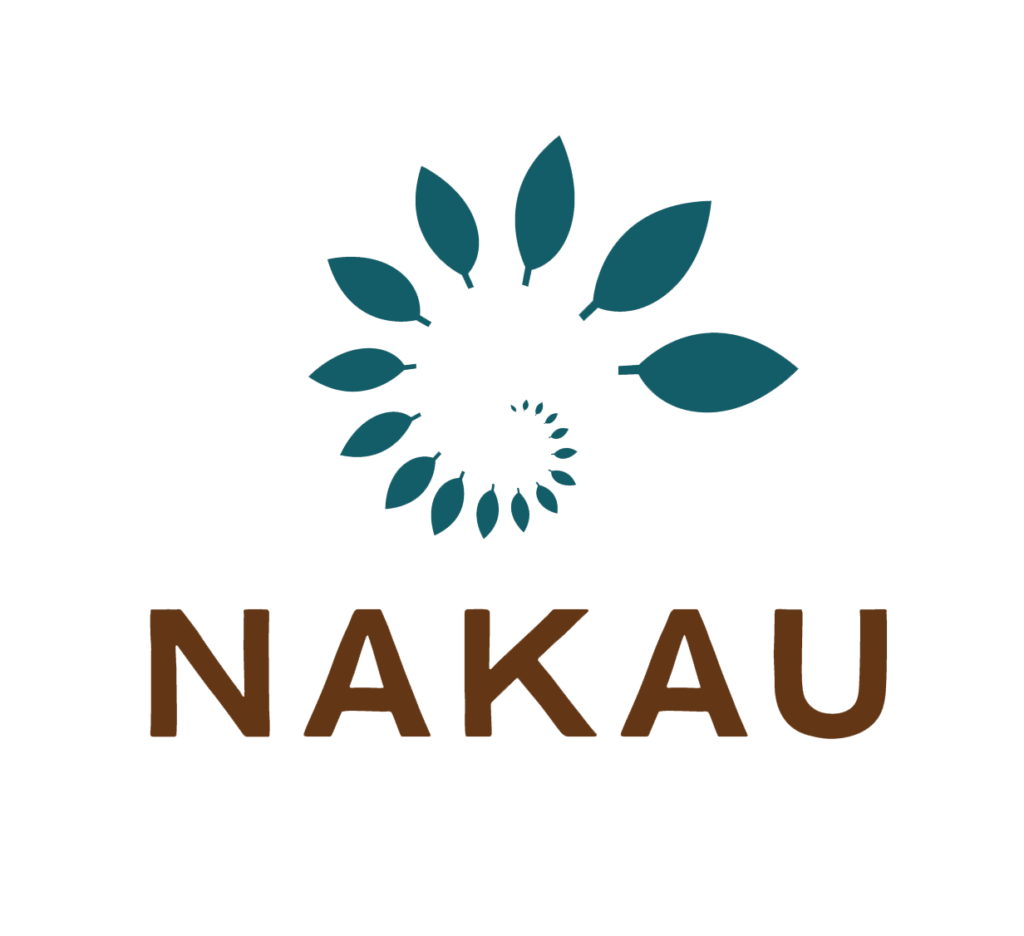
Drawa Forest Project – Vanua Levu, Fiji
The Nakau Programme, which developed and oversees the Drawa project, just released their 2023 year-end newsletter as well as their 2022-2023 annual report, which can be found in the Dropbox link at the top of this email.
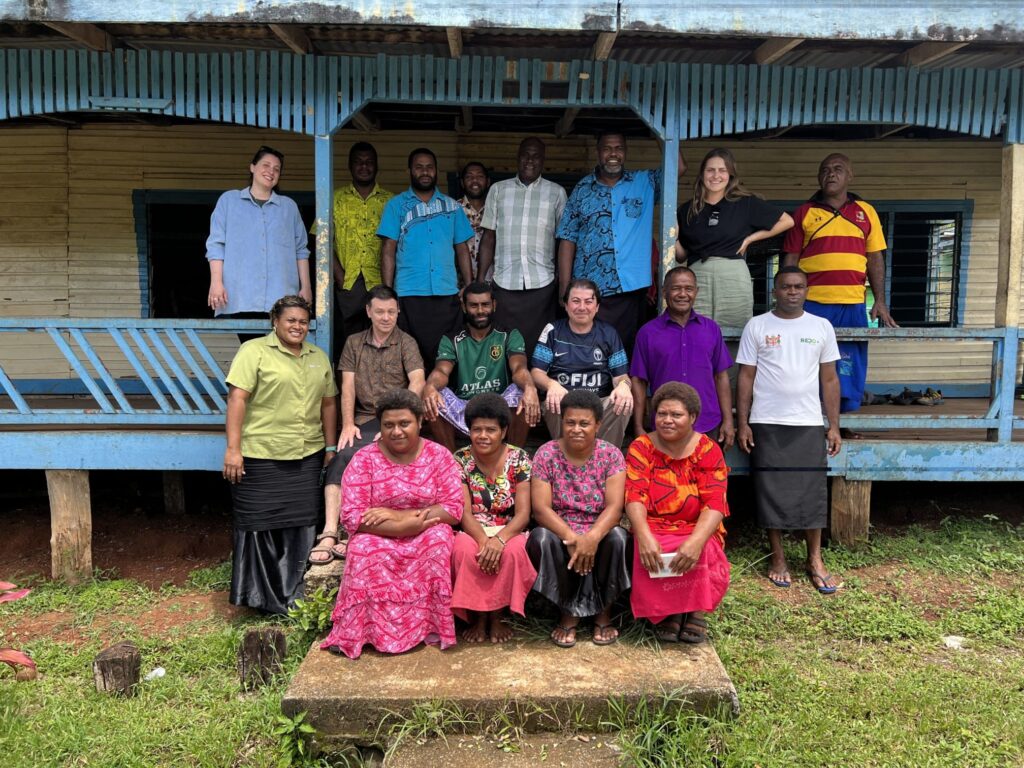
Earlier this year, the Plan Vivo Foundation visited several of the Nakau Programme’s excellent projects, including COTAP partner Drawa. Here we see representatives from Nakau, Live & Learn Fiji, and Plan Vivo along with Batiri village community members. You can read about Plan Vivo’s Nakau visit on their blog.
Drawa featured by The Fiji Times and Mongabay

The Fiji Times covered Drawa before Plan Vivo’s visit in a piece titled “Inspiration at Drawa: cash from the forest,” and afterwards in a piece called “Conserving forests: ‘High integrity carbon projects are important’.”

Drawa also hosted journalist Monica Evans from Mongabay, a highly respected nonprofit environmental news outlet. Monica put out two excellent pieces in September: “Photos: Fiji’s first Indigenous-owned carbon credit project” as well as “‘The forest is so much more than money’: Q&A with Fijian carbon project ranger Jerry Lotawa.”
ICYMI: Thought Leadership and Photo Essays by Nakau
- “Land-use planning – Four key reasons why we do land-use planning“
- “Asking the right questions – Growing high-integrity carbon projects that work for people and nature”
- “The good nature of carbon projects – What high-integrity means for us“
- “Our natural protectors – How the Drawa community in Fiji found protection and opportunity in the rainforest“

Plan Vivo Foundation
Plan Vivo just released their 2023 year-end newsletter as well as their 2023 annual report, which can be found in the Dropbox link at the top of this email. Since COTAP’s founding in 2011, we have exclusively supported projects certified by Plan Vivo, the world’s oldest forestry carbon standard and the only one which requires that project organizers share at least 60% of carbon revenues with local participating communities.
Launch of PV Nature, PV Carbon Standard re-branded as “PV Climate”
Due to popular demand, Plan Vivo recently launched their new biodiversity standard, known as PV Nature. This means there are now two PV standards, and to differentiate between them the Plan Vivo Carbon Standard will now be known as PV Climate. For those curious about PV Nature, check out PV’s recent webinar:
Other Plan Vivo updates
- PV hosted an East Africa Regional Stakeholder Meeting in Nairobi.
- PV staff embarked on an extensive tour of the Pacific region, visiting local projects and partners, and conducting government and community meetings in New Zealand, Fiji, Solomon Islands, Vanuatu, and Australia.
- Early this year, PV released a statement in response to The Guardian’s critical reporting on carbon offsets and carbon markets. More on that below!
COTAP Updates
2022 IRS 990 published. Our IRS filing for 2022 was finally completed in mid-November and can be found with all of our other 990’s here. Our audited financials for 2016-2020 are available upon request and our 2021 audit is still in process. This has helped us earn Candid/Guidestar’s Gold Transparency Rating for 2023! We’d like to give a big THANKS to our indispensable volunteer CFO Phil Curry, our bookkeepers ProBooks NY, and our auditors Harshwal & Company for their patience and diligence in counting COTAP’s beans.
2023 as of December 6th. Through December 6th, COTAP has raised $190K for our partner projects this year, up from $147K for the same period in 2022 but down from $225K in 2021. COTAP has paid out $256K to projects so far in 2023, which includes funds raised but not yet paid in 2022. For comparison, COTAP paid out $252K in 2022 and $230K in 2021. As of December 6th, COTAP owes projects $146K for offsetting donations received but not yet paid. Further, COTAP’s carbon credit holdings in the Markit Environmental Registry are currently 25,070 tonnes and will soon be 30,229 tonnes – all of which will be retired on behalf of the Cotappers. This is the important final step in the offsetting process, and these are tonnes our partner projects have already received payment for. If it looks like we are a bit behind on credit retirements, that’s because we are : )
Project visits and new projects. COTAP typically undertakes 1-2 project visits and/or stakeholder events per year. In 2023, we took a break because in 2022 we attended our third Plan Vivo Stakeholder Event and visited the Khasi Hills REDD+ Project. As noted in May, we dropped down to 4 projects for the remainder of 2023, and we are looking forward to expanding the COTAP project portfolio in early/mid 2024.
Website & Search Engine Projects. This year, we took on a long overdue website rebuild. It’s been a gradual, subtle revamp with various new features and enhancements. We were extremely lucky to find WordPress wizard Himad Mouhtar to take on this project. We occasionally come across content and features that got a bit mangled in the process. If you see anything that doesn’t seem to look or work as it should, please let us know, we’d appreciate it.
COTAP Needs More Non-Offsetting, Unrestricted Donations. 2023 has brought a challenging 2-way combination of significant website costs and continued modest volumes, which don’t mix well with our 10% margins. Together, they’ve put a serious dent in our cash reserves. Unlike many nonprofits which use 100% of your donation in an unrestricted manner, COTAP’s passes on 90% of offsetting funds to our projects. So, if you’ve already offset with us this year, consider making an additional donation where 100% goes to our operations. In addition online donations, we also accept cryptocurrency, stock, DAF donations, and most types of vehicles.
In addition to the website, in 2023 we also made considerable investments in Search Engine Optimization (SEO) and reviving our Google Ads Grant. Only recently, and for the first time ever, were we able to deploy our entire daily ~$1,333 click spend on visits entirely from within the U.S.!
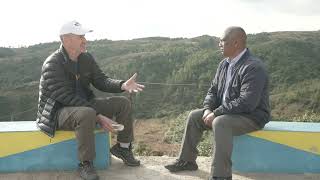
Stories, Stories, Stories… We’re continuing to roll out all the fabulous stories gathered during our project visits, including this outttake called “Energy, Electricity, and Fire Risk in The Khasi Hills” that didn’t fit into our Khasi documentary. In early 2024 we aim to release our remaining TGB farmer interviews as well as the individual community interviews from the Khasi documentary.
New California Carbon Offset Regulations. The State of California passed Assembly Bill No. 1305, which requires various disclosures for voluntary carbon offset providers and certain California-based entities (corporations, not individuals) which purchase offsets. COTAP is thankful to our pro bono legal friends at Debevoise & Plimpton LLP for assisting us with exploring and understanding the implications of this new law. The vast majority of required information is stuff we’ve already been doing since 2011, and we’ll be busy packaging it in time for the law’s January 1, 2024 effective date. We are also thankful to Debevoise for their help analyzing regulations pertaining to international carbon trading (see discussion of Article 6 below) and monetary transfers.

Thoughts on The Guardian (and Steve Zwick plug)
The case for carbon offsetting by individuals – who seek to take responsibility for their unavoidable emissions as they transition away from fossil fuels – is as clear and strong as ever. COTAP’s very proud of our transparency and the multiple measures our projects use to ensure permanence and accountability.
Early this year, The Guardian proclaimed that “90% of forest-based carbon offsets are worthless.” Predictably, this faulty claim was accepted as fact and spread infinitely online. This is nothing new. At a basic level, it’s “right intention, wrong move” by The Guardian. The wrong move is to attack the tool of offsetting instead of the corporations who misuse it by offsetting in place of, and not alongside, significant emissions reductions. This is akin to claiming that “all insurance and loans are bad” because of bad actors who caused the 2008 financial crisis. Beyond the “wrong move,” they’re acting in bad faith. When you see all of their pieces in one place, it becomes clear there’s an ideological anti-market agenda. We’ve seen this before, it keeps happening, it’s impossible to keep up, and it’s exhausting.
A similar, previous barrage of hit pieces was by Lisa Song of ProPublica. We started compiling her pieces because it becomes obvious, when you see it all in one place, that this stuff decreasingly looks like journalism and increasingly looks like a concerted effort to “cancel” carbon markets. To address it, COTAP founder Tim Whitley put out an Op-Ed rebuttal in The Hill in collaboration with Steve Zwick, longstanding carbon markets expert, host of the Bionic Planet podcast, and former Ecosystem Marketplace Editor. Steve is one of the most seasoned and circumspect observers of carbon markets and how they are treated in the media. We recommend, for starters, Steve’s Bionic Planet podcast and his 3-part series about faulty carbon journalism, which starts with “Will Coverage of Climate Solutions Suffer the Same Fate as Coverage of Climate Science?“
In addition, we recommend reading Plan Vivo’s statement on the matter, as well as a fresh paper by a team of scientists titled “Serious errors impair an assessment of forest carbon projects: A rebuttal of West et al. (2023).” They are directly challenging the study that The Guardian’s article was based on, and calling for it to be retracted as scientifically unsound. In the scientific world, them’s fighting words! It takes a LOT to bring together 11 scientists with busy day jobs to put together a 26-page paper calling B.S. on other scientists, but The Guardian’s reporting, and the West et al. study which underpinned it, were apparently that egregious. One thing is for sure: if the West et al. paper is retracted, you will not be hearing about it from The Guardian or ProPublica.
COP28, Carbon Markets, Fossil Fuels, and Al Gore
“COP” is short for the United Nations Climate Change Conference or Conference of the Parties of the UNFCCC. This year it was held from November 30th to December 12th in Dubai, United Arab Emirates.
We generally keep an eye on the COP, and primarily on developments pertaining to Article 6 of the Paris Agreement which covers carbon markets. Article 6 influences whether countries seek to do things like claim emissions reductions generated within their borders (this is related to our Bujang Raba Indonesia situation mentioned above) or take a cut of carbon developers’ revenues. COP28 did not make meaningful progress on Article 6.
In addressing climate change, nothing takes the place of policy and nothing takes the place of steep and direct emissions reductions. Sadly, COP28 overall felt like a relative triumph for simply acknowledging the painfully obvious need to “transition away from fossil fuels” for the “first time.” It was a surprise to zero people that COP28 stopped short of a long-demanded call for a “phaseout” of oil, coal and gas.
Why? Reasons include record numbers of fossil fuel lobbyists and the fact that the COP28 president, Sultan Al Jaber, also happens to be CEO of Adnoc, which is the UAE’s national oil and gas company. For a breakdown of how Big Fossil continues to subvert and slow down climate progress, as well as few good reasons to stay optimistic, we yield the floor to this master class by the one and only Al Gore:
Thanks for reading!
Happy Holidays,
